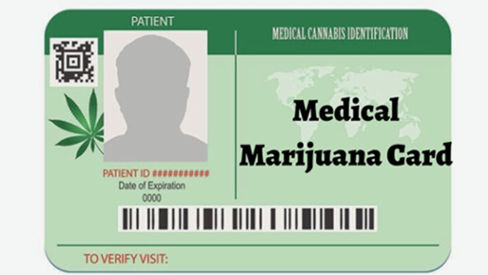Some state regulations allow medical marijuana use to treat any condition a certifying practitioner deems clinically appropriate. However, before scheduling an evaluation, it’s essential to have your records ready.
Patients who obtain a card can choose from various products and strains. They can also save money on cannabis by avoiding taxes.
Requirements for Obtaining a Medical Marijuana Card
The requirements for obtaining a valid medical marijuana card may vary by state. The first step is to speak with your primary care physician. They can determine if your symptoms qualify for medicinal cannabis and discuss the potential risks with you. If they approve you, the next step is to find a registered doctor in your area.
The physician will review your medical history and ask questions to understand your symptoms. They will also advise you on the type of cannabis and dosage to best suit your needs. Once they have done this, they will prepare a certificate for you. This will include the medical condition that qualifies you for the program, your doctor’s DEA number and practitioner number, dosing recommendations, and expiration date.
You must complete an online registration with the Department of Health’s Medical Marijuana Program. You must provide basic information and a copy of your driver’s license or other form of identification.
The law allows patients to designate caregivers who can help them purchase and administer medical-grade marijuana. Caregivers must register and pass background checks. They must also be 18 or older. Minors can only participate in the program with their parent’s or legal guardians’ consent.
Qualifications for Obtaining a Medical Marijuana Card
If you suffer from a debilitating medical condition, a physician can help you obtain a medical marijuana card. A medical marijuana card is a valid form of identification that allows you to purchase cannabis from licensed dispensaries in the state. It also entitles you to grow your cannabis plants at home for medicinal purposes.
Before becoming a medical marijuana patient, your doctor must verify that you have one of the state’s qualifying conditions. The list of conditions that qualify for a medical marijuana card includes cancer, HIV infection or AIDS, Alzheimer’s disease, amyotrophic lateral sclerosis (ALS), chronic pain that degrades your health and functional capability, inflammatory bowel disease, neuropathy, epilepsy, other severe symptoms.
Once your physician deems that you are a candidate for medical marijuana, they will send you a patient certification. This document will include a Registry ID that is unique to you. You must use this Registry ID to register for the program online and complete your application portion.
Once registered, they will send you a temporary medical marijuana card valid for up to 12 months. After that time, you will need to reapply for the card. You can do this by visiting a practitioner or using a third-party web application to handle the entire process.
The Process of Obtaining a Medical Marijuana Card
Getting a medical marijuana card alleviates your symptoms. Marijuana is a natural plant that contains cannabidiol (CBD) and delta-9 tetrahydrocannabinol (THC), both of which have therapeutic properties. Medical marijuana relieves pain, anxiety, nausea, and other symptoms.
To obtain a medical marijuana card, you must consult your physician and ensure your condition qualifies. Then, you must complete a medical marijuana evaluation with a licensed doctor. A doctor will examine you and evaluate your symptoms before recommending the appropriate dosage of medical marijuana. After the review, you will receive a medical marijuana certificate valid for one year.
Once you have your medical marijuana card, you can purchase cannabis from any dispensary licensed by the state. You will need to present your Registry ID alongside a valid government ID to make a purchase.
Obtaining a medical marijuana card is a relatively straightforward process. You can find qualified healthcare practitioners authorized to issue medical marijuana certifications by county on the Department of Health’s website. The website also lists telemedicine healthcare providers licensed to conduct medical marijuana evaluations. A telemedicine clinic typically has a longer wait time than an in-person clinic.
The Cost of Obtaining a Medical Marijuana Card
Depending on your state, the cost of a medical marijuana card can vary. For example, it costs nothing to obtain a recommendation, but a renewal certification appointment costs a dollar. You’ll also need to pay for any cannabis products you purchase.
To obtain a medical marijuana card, you must visit a doctor with experience handling medical marijuana evaluations. Unfortunately, some doctors have limited availability and may only be able to see you after some time. This can be inconvenient, primarily if you work during the day or have family obligations that prevent you from being available when it’s convenient for you to visit the doctor. Traveling to and from a doctor’s office also adds time and money.
Thankfully, the team offers a safe and convenient telehealth solution that allows you to meet with a physician trained to understand how cannabis can help ease pain and discomfort. Their telehealth appointments are simple and safe; you can schedule them at a time that works best for you. Plus, we have a diverse group of experienced physicians who can evaluate you for your specific condition and make a medical marijuana recommendation.
